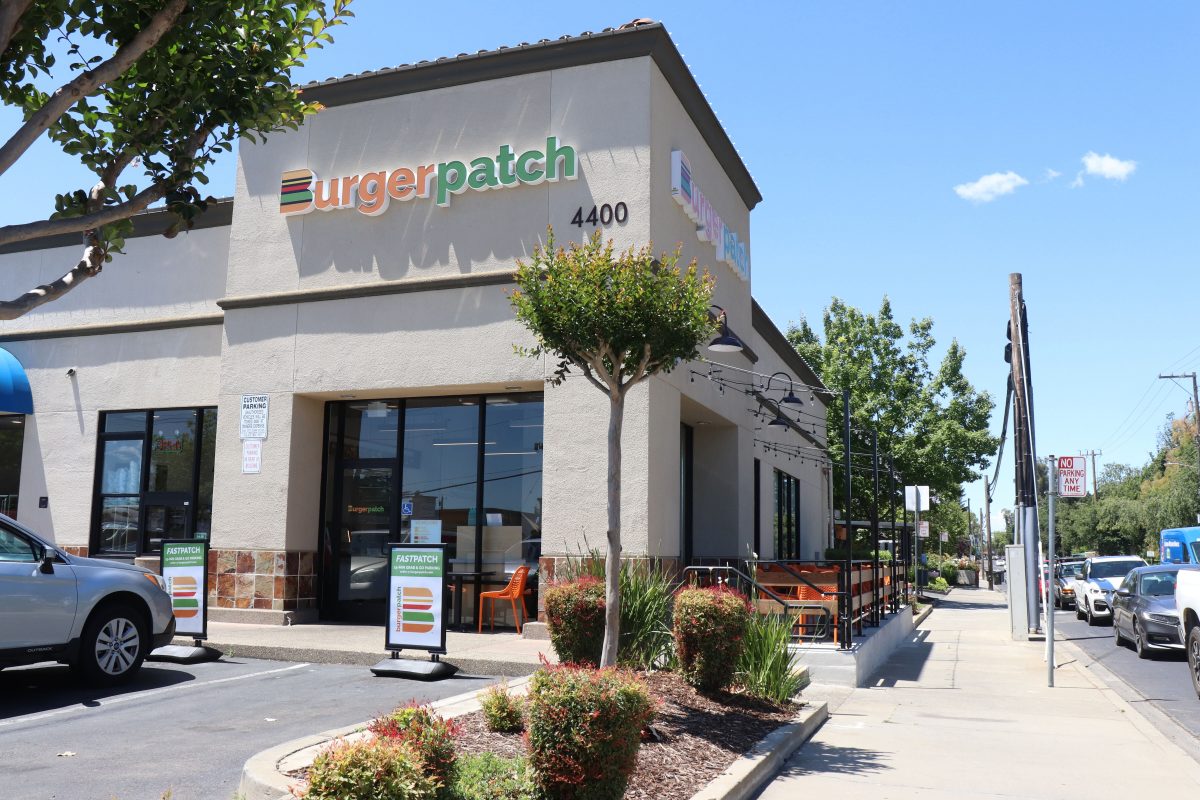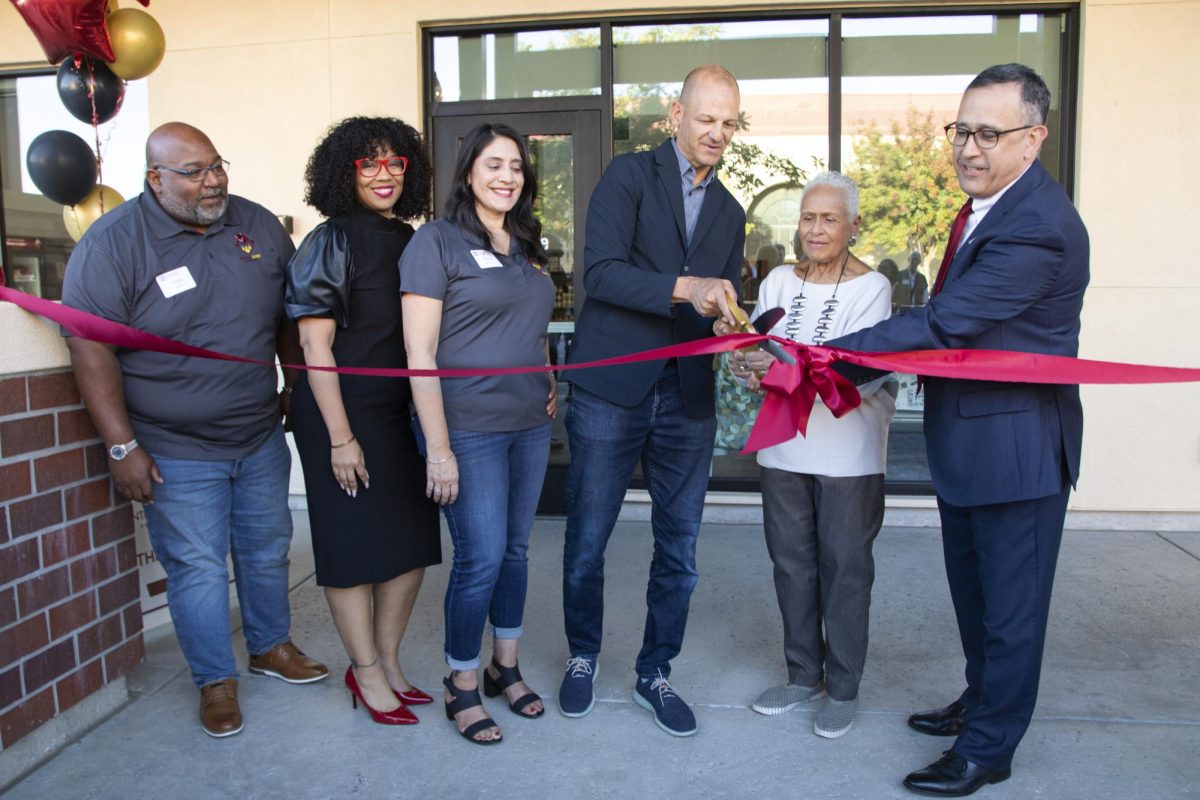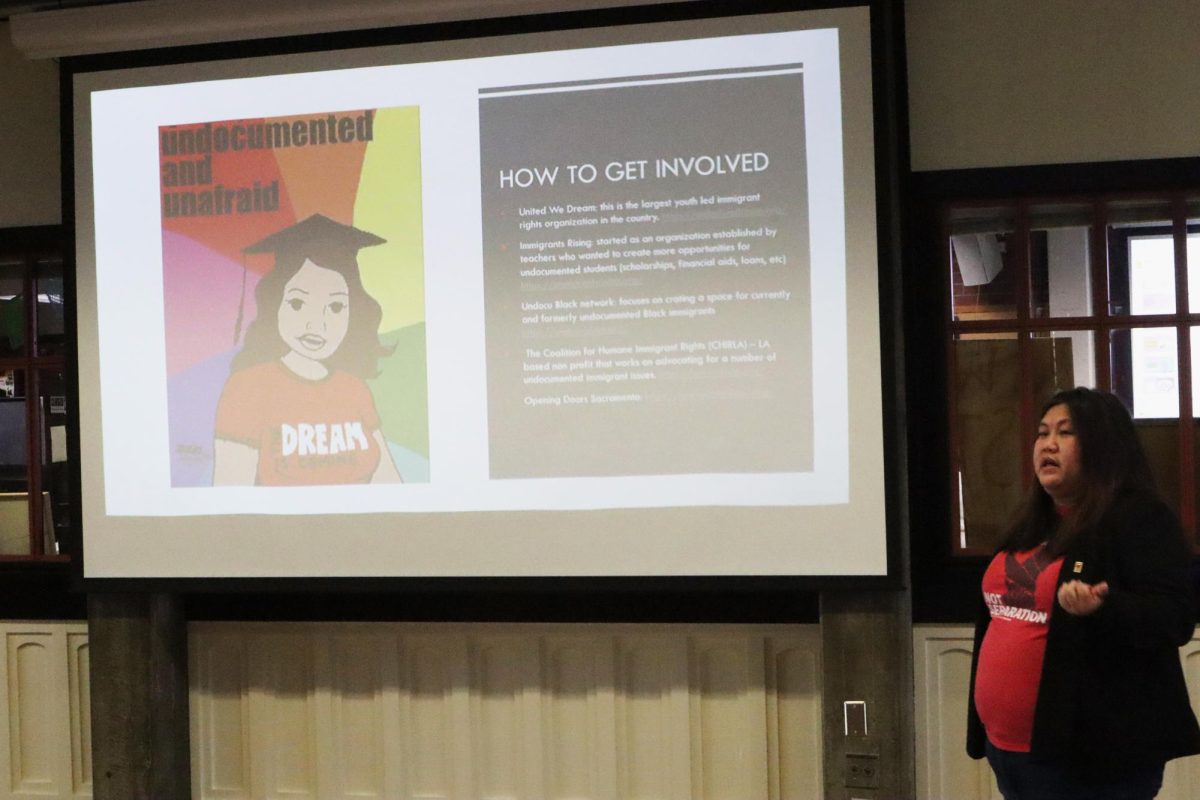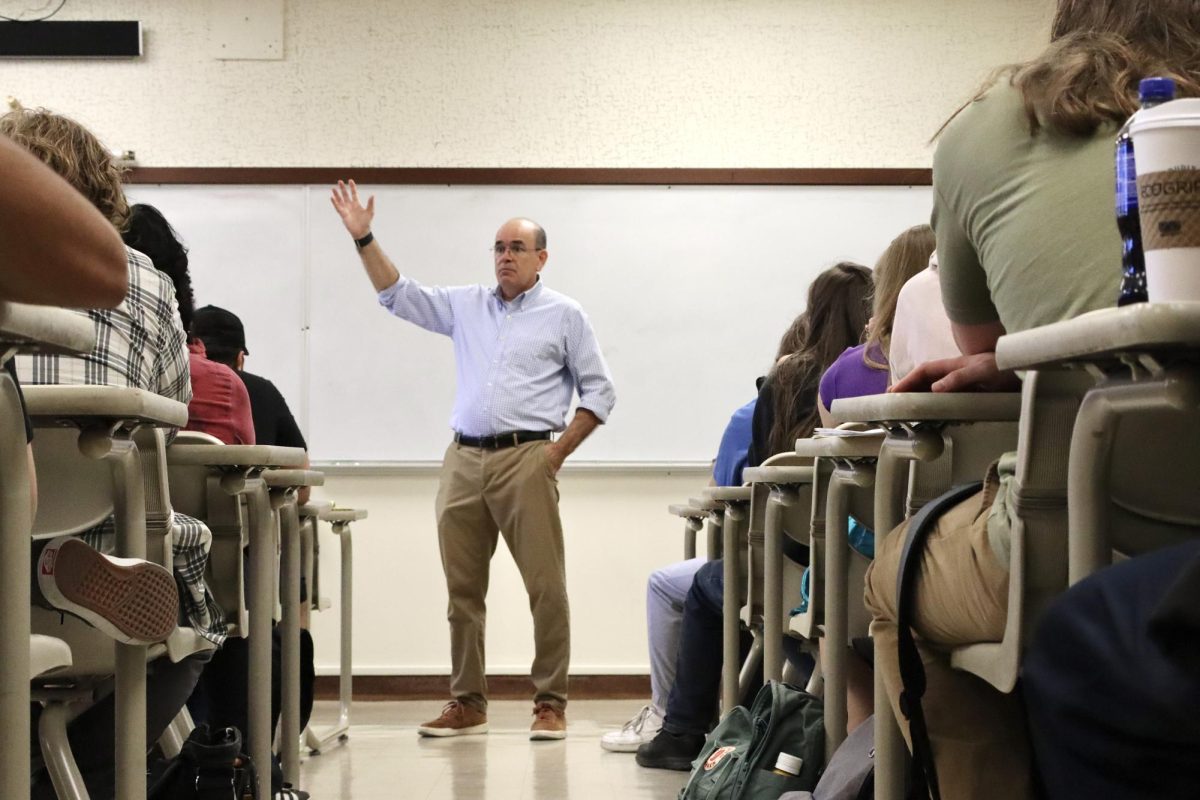Alexa Bever, a student at City College and member of the environment and sustainability club, has been a vegetarian all of her life. Within the past five years, she took the plunge to follow a completely vegan diet.
“I think veganism is more of a consent [issue],” Bever said. “It’s a matter of, I’m not going to take something from something that is alive and can’t give me consent. … I kind of just feel better about not putting things in my body that I know aren’t for me.”
Burger Patch, a fully vegan, quick-serve restaurant chain, opened on Freeport Boulevard right down the street from City College on April 9.
As veganism and a move toward more sustainable eating habits grows in popularity, Burger Patch will provide a familiar yet sustainable alternative to the all-American fast food fries, burgers and shakes.
Burger Patch was founded in 2019 by Phillip Horn and his wife, Danea, in Sacramento. Their business philosophy is rooted in kindness toward the planet, animals and our community. Burger Patch is the largest 100% vegan fast-food chain in Northern California with three locations throughout Sacramento and one in Davis, according to Horn.
“I think plant-based eating in general is just a move toward a more conscious way of eating that is more representative of how people want to spend their money,” said Horn. “For their environment or for companies that are making a difference and giving back to their communities or saving the lives of animals. I really feel, particularly with the younger generation, that it’s a movement that will only get stronger.”
Reasons for taking the plunge into alternative and sustainable diets range from protecting the animals to respecting the planet and preventing further climate change.
“It’s a long-term solution to bigger problems in the world that we face,” Horn said. “It’s certainly not the solution, but every little bit makes a difference. And we think that it’s more of a movement toward sustainable options whether that be food or fashion or automobiles or whatever it is.”
When it comes to the fast-food burgers and shakes consumers are used to, some people might not recognize the means of production behind the vegan alternative.
“Our burgers require 99% less water and 90% less greenhouse gasses are given off to produce the burgers that we serve,” Horn said. “We’re cutting out a big part of the food chain to produce our food. … We’re going straight to the source of the vegetable to produce all of our products. So it’s a considerable amount of reduction when it comes to impact on the environment.”
Veganism can inspire people to be more health conscious in their daily lives and make it more apparent what they choose to put into their body and how it makes them feel, according to Bever.
“It makes me feel a lot better, a lot healthier,” Bever said. “I’ve realized I have a lot more energy after going vegan… I think it helped a lot with my mental health too. I’m a type one diabetic and it helped me a lot when it came to regulating my blood sugars and everything like that. I think that a lot of time if you take care of yourself physically it helps a lot mentally.”
Because veganism is a relatively up-and-coming diet for many Americans, [many cultures have utilized aspects of a vegan diet for centuries] the options for dining out can sometimes be scarce.
“The cons are definitely access to food in certain places when you go out to eat, because there’s not a lot of vegan options everywhere you go,” Bever said. “So it’s kind of a restriction on where you can go out to eat because of that.”
With Burger Patch within walking distance from City College, it will provide a quick and easy vegan alternative for students and staff to experiment with.
“We hope that it’s an attractive option for students that are sort of on the go,” Horn said, “looking for a conscious alternative, but also still looking for something that’s quick and cravable.”



























